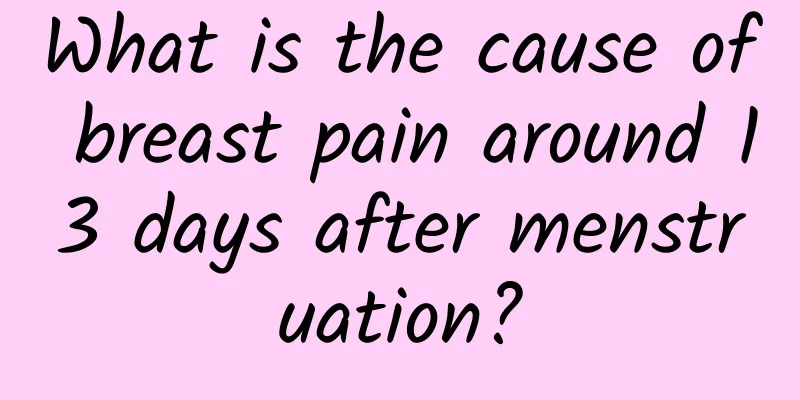What are the symptoms of functional uterine bleeding?

|
Functional uterine bleeding is manifested by irregular menstrual cycles, prolonged menstruation, or abnormally increased bleeding. Treatment requires adjusting hormone levels or performing surgical intervention according to the cause. Functional uterine bleeding is common in adolescent and menopausal women, mostly caused by fluctuations in hormone levels, and may also be related to intrauterine lesions. 1Irregular menstrual cycles are typical symptoms of functional uterine bleeding. Patients may experience early or delayed menstruation, irregular cycles, or even multiple bleeding in a month. This phenomenon is related to ovarian dysfunction and usually requires hormone therapy to regulate the cycle. 2 Prolonged menstruation is another important manifestation of functional uterine bleeding. The menstrual period may last more than 7 days, and some patients may even continue bleeding for more than 10 days. This condition can easily lead to anemia, which requires timely hemostasis and iron supplementation to correct anemia. 3. Abnormal increase in bleeding is also a common symptom of functional uterine bleeding. Patients may find that the amount of bleeding has increased significantly, and they need to use more sanitary products, or even blood clots. This situation often requires medication to stop bleeding, and in severe cases, surgery may be required. 4. Functional uterine bleeding may be related to a variety of factors. In adolescent women, it is mostly caused by the incomplete function of the gonadal axis, and in menopausal women, it is mostly caused by ovarian dysfunction. Some patients may have organic lesions such as uterine fibroids and endometrial polyps, which require B-ultrasound examination for diagnosis. 5 Treatment of functional uterine bleeding usually starts with lifestyle adjustments. Maintain a regular work and rest schedule, avoid overwork, and pay attention to balanced nutrition, especially iron supplementation. Moderate exercise helps regulate endocrine, but strenuous exercise should be avoided during menstruation. 6. Drug treatment is the main method for functional uterine bleeding. Doctors may prescribe estrogen and progesterone preparations to regulate the menstrual cycle, or use hemostatic drugs to control bleeding. Some patients need iron supplements to improve anemia. Medication should be taken according to the doctor's instructions, and the plan should be adjusted for regular follow-up visits. 7Surgical treatment is suitable for patients who are ineffective with drug treatment or have organic lesions. Endometrial resection can effectively control bleeding, and hysterectomy may be required for severe cases. The choice of surgical method should take into account factors such as the patient's age and fertility needs. Dysfunctional uterine bleeding needs to be taken seriously. See a doctor in time to find out the cause and take appropriate treatment measures according to the specific situation. During the treatment, pay attention to observe the changes in symptoms, maintain a good attitude, and avoid anxiety that aggravates the symptoms. Regular follow-up and reexamination should be performed to ensure the treatment effect. |
<<: How to treat endometriosis with drugs
>>: What supplements can cure functional uterine bleeding quickly?
Recommend
Mulberry and safflower soup can effectively nourish blood and regulate menstruation
Traditional Chinese medicine believes that irregu...
What is the main cause of cervical hypertrophy?
Cervical hypertrophy is the most common type of c...
How long does it take to get an abortion? See what the doctor says
Abortion is a remedial measure after contraceptiv...
How to confirm ovulation bleeding
Ovulation bleeding usually occurs in the middle o...
Drinking more water to lose weight really helps reduce fat calories
For people who want to lose weight, often heard a...
How to provide nursing care for patients with ectopic pregnancy
It is very common for women to have ectopic pregn...
Beat body fat! 3 sports myths you should know
I'm clearly trying hard to lose weight, but w...
What are the dangers of bacterial vaginosis if it is not cured for a long time?
Bacterial vaginosis usually refers to inflammatio...
What are the symptoms of unclean miscarriage?
If after the abortion, the blood continues to be ...
Ways to help prevent adnexitis in daily life
The incidence of adnexitis in China is very high,...
Prevent menopausal obesity by testing your physical fitness and exercising more
"Middle-aged obesity" is a problem for ...
Analysis of methods to prevent irregular menstruation
Irregular menstruation is a problem faced by many...
Facial wrinkle removal, food supplements, massage and stay away from aging
Mother's Day is coming soon. Moms who work ha...
How much does it cost to treat cervical warts?
Cervical warts are not as terrible as many women ...
It’s hard to lose weight if you have weak genes! Recognize the 5 major obesity types
Obesity is the root of all diseases. In addition ...









